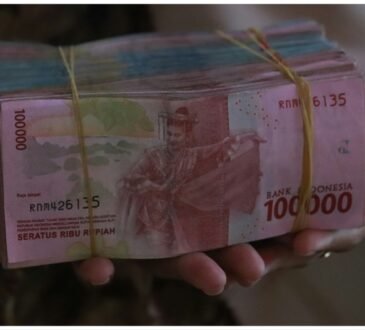Sept 19 (Reuters) – Analysts remained bullish on most Asian currencies despite marginally dialling back some bets, a Reuters poll showed on Thursday, as a defensive U.S. dollar driven by a dovish Federal Reserve enhanced the appeal of risk-sensitive assets.
Long bets were the highest on the Malaysian ringgit and the Thai baht , with those on the latter at their peak since January 2023, driven by strong growth fundamentals and stabilising politics.
Anticipation of Fed rate cuts pushed the dollar to the defensive, providing a much-needed breathing space for emerging markets and improving their allure. Most Asian currencies logged a stellar recovery in August against the dollar.
“We do not rule out further bouts of USD weakness in the weeks ahead and expect overall downward pressure on USD/Asia FX to be sustained,” analysts at Barclays said.
The dollar index is trending near 100 against a basket of major currencies, down from 104 at the end of July.
The analysts said they expect Asian currencies to continue to appreciating in the fourth quarter, but foresee a reversal in the first half of 2025.
Ryota Abe, an economist at Sumitomo Mitsui Banking Corp, said the market view of Fed rate cuts by the year-end “looks excessive” which could lead to correction in Asian emerging market currencies.
Bullish bets on the Chinese yuan and Singapore dollar were dialled back to levels seen four weeks ago, while those on the Philippine peso hit a four-year peak.
Analysts were long on the Indonesian rupiah for the fourth consecutive iteration of the poll – the longest since May 2023 – underlining the recent appreciation stemming from robust economic fundamentals and growing inflows into emerging markets.
The rupiah has appreciated more than 6% since July and is expected to continue marching on after Bank Indonesia’s (BI) surprise rate cut decision to support growth, front-running the Fed.
Barclays analysts said BI will “likely broadly match or slightly under-deliver versus the Fed in terms of the magnitude of total cuts” which should not “necessarily see the IDR fall out of markets’ favour from a rates-differentials perspective”.
The Asian currency positioning poll is focused on what analysts and fund managers believe are the current market positions in nine Asian emerging market currencies: the Chinese yuan, South Korean won, Singapore dollar, Indonesian rupiah, Taiwan dollar, Indian rupee, Philippine peso, Malaysian ringgit and the Thai baht.
The poll uses estimates of net long or short positions on a scale of minus 3 to plus 3. A score of plus 3 indicates the market is significantly long U.S. dollars.
The figures include positions held through non-deliverable forwards (NDFs).
The survey findings are provided below (positions in U.S. dollar versus each currency):
Sign up here.
Reporting by Sameer Manekar in Bengaluru; Editing by Varun H K
Our Standards: The Thomson Reuters Trust Principles.



